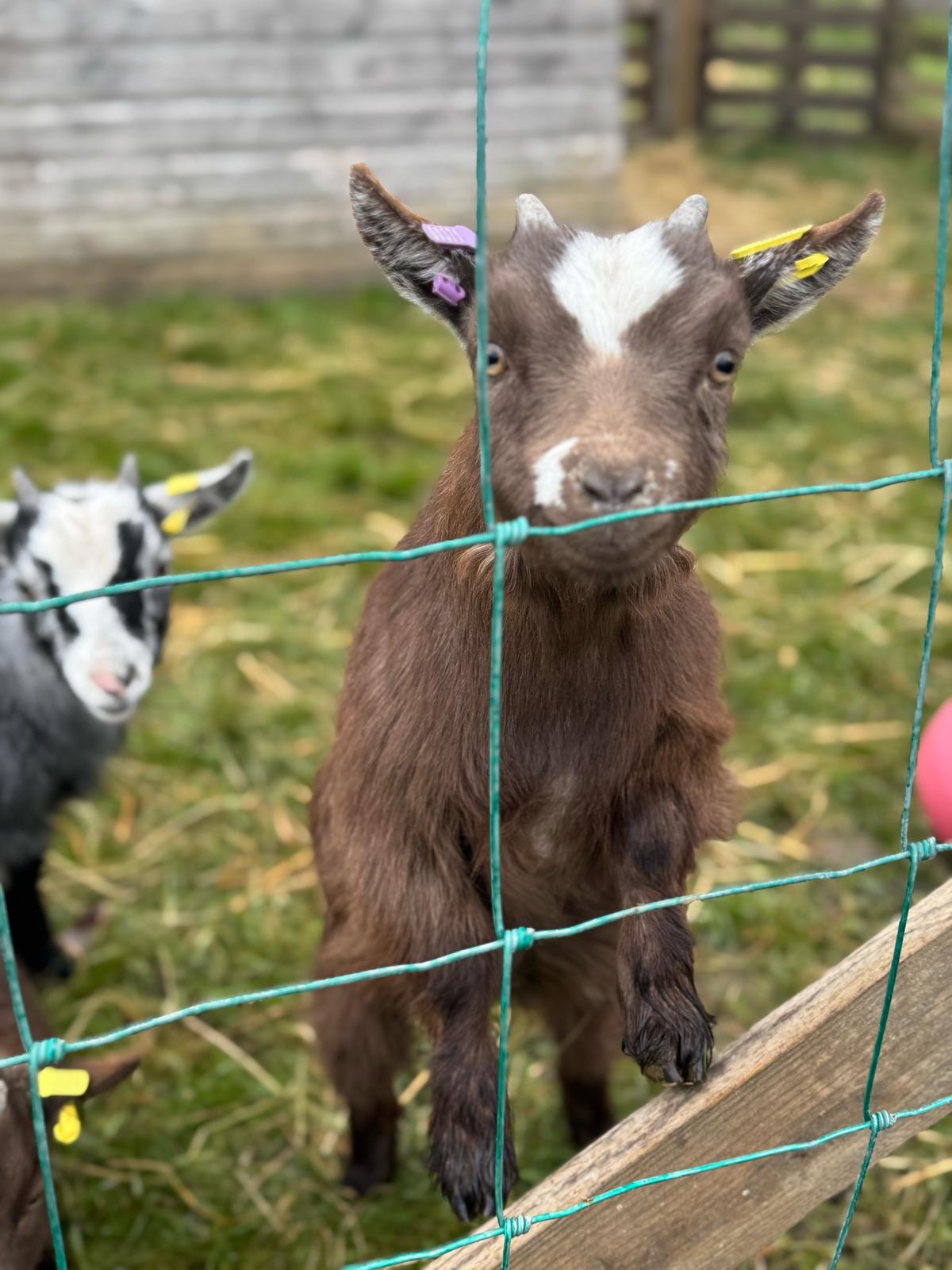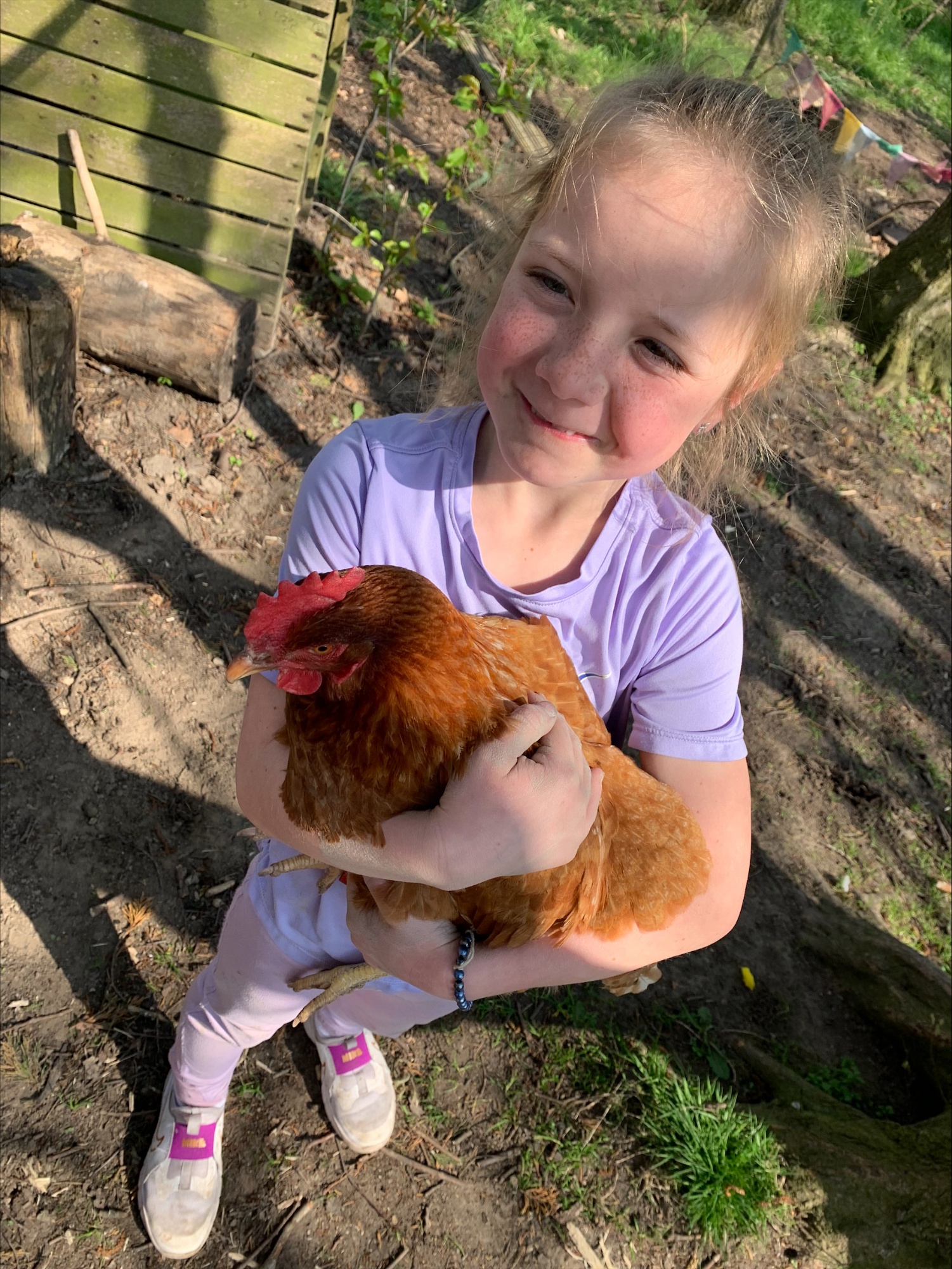Fferm Y Ferry
Our school farm journey started in Autumn 2023 as we developed ideas with pupils. The concept behind it all began with a group of learners developing their literacy skills through 'Little Red Hen', a staff member brought their hens in for the day and we also had a zoom call with Farmer Henry who told us all about his beef farm...why not embed agriculture into our learning experiences??....
Since then, our school farm has developed considerably! The children in Dosbarth Gwynant (year 5/6) are our Ferry Farmers / Ffermwyr Y Ferry and develop skills and responsibilities through farming education on our school site. Each week they have job roles assigned to care for the farm, ensuring tasks are completed daily and it functions safely. Children from other year groups join Clwb Ffermio each week and spend parts of their day visiting the animals and community garden as part of their learning.
Our rescue hens are a key piece to developing our message of sustainability through farming practices. We sell the eggs to our local community, with profits used to develop the hens environment or wider projects on the farm.
This term we've become goat keepers and more recently sheep too! They have been a fabulous addition to our learners' opportunities to learn more about animal care.
Over the Summer term we have further developed our community garden. With thanks to Welsh Government funded projects, it is full of fruit, vegetables and herbs to promote biodiversity and help us produce our own food. We've used donated wood chip to tidy paths and the garden as well as becoming shepherds of sheep! Our new sheep, Dennis and Denise were kindly donated by a local sheep farmer having heard what we are striving to develop for our pupils. Plenty of new learning experiences to come from our two newest additions.


